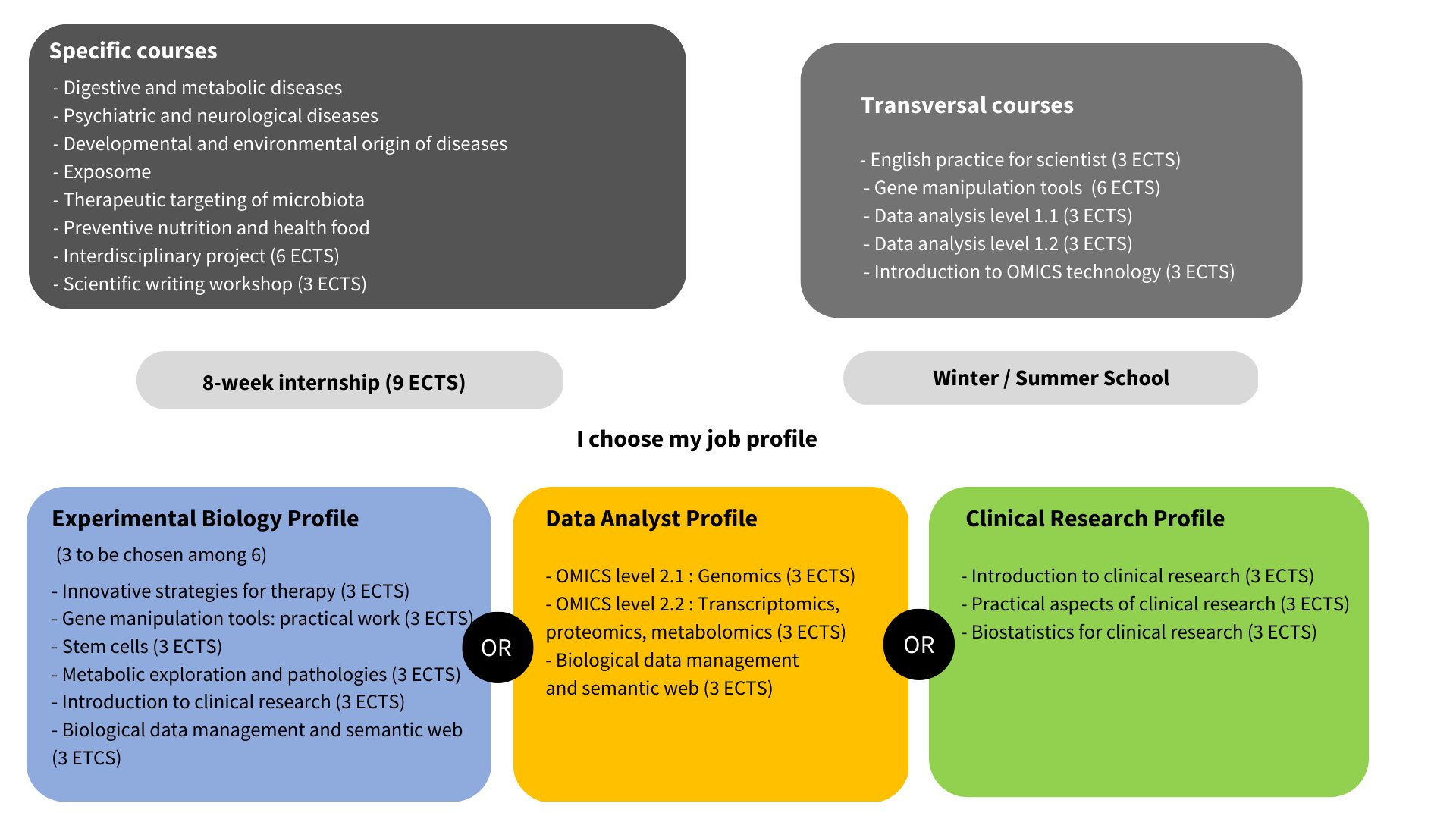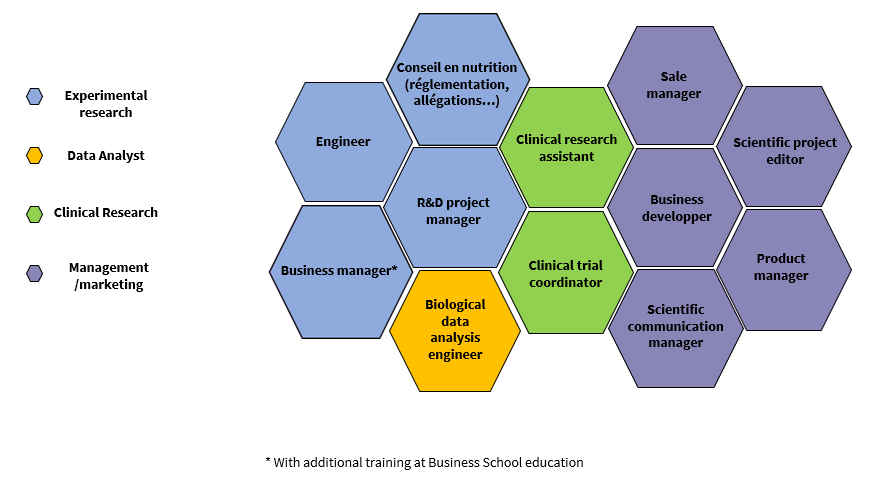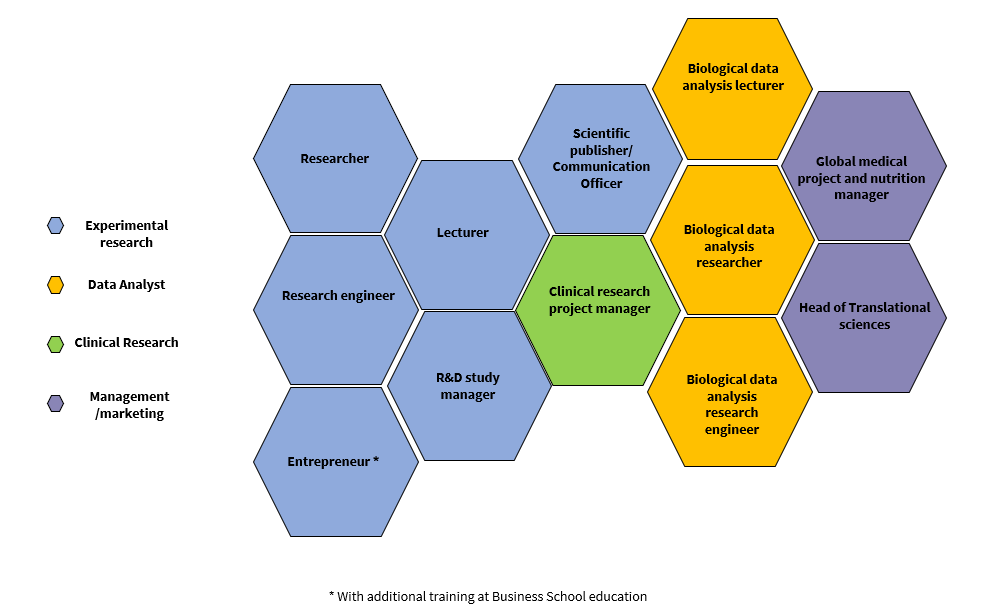General information
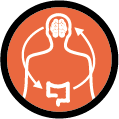
- Place: Nantes
- Langue: English and French


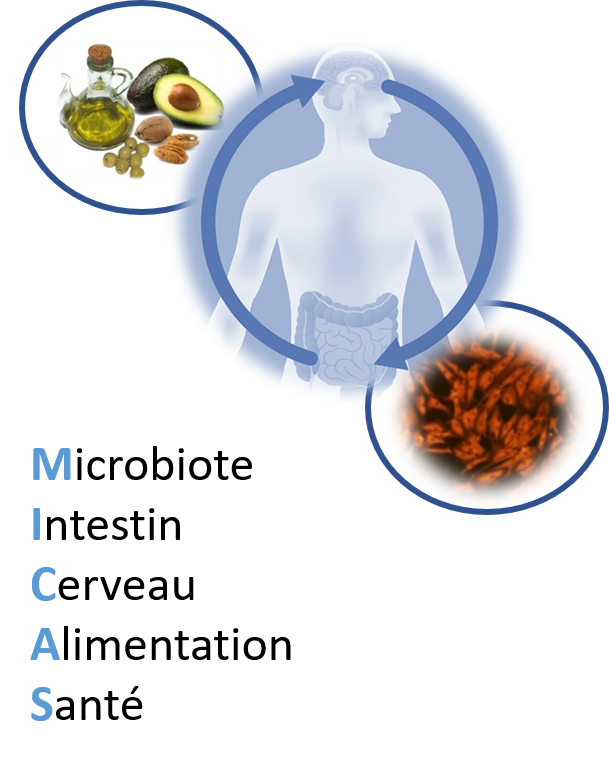
The corresponding pathological mechanisms are involved in chronic neurological, inflammatory and metabolic diseases.
The GP MICAS studies the functioning and intestine deregulations, annex organs and the brain, impacted by the microbiota and diet.
The GP MICAS also emphasises preventive nutrition and the concept of the developmental origins of health and disease (DoHAD) as levers to preserve the proper functioning of these organs.
This teaching and research programme is based on the recognised clinical and scientific expertise of the research units in Nantes.
This expertise concerns the following fields: biomedical, neurobiology, microbiota, gastroenterology, metabolism, allergology and nutrition as well as bioinformatics and systems biology.
Year 1: From health and disease to the bench by mobilising different resources covering the latest scientific and methodological advances in the field.
Year 2: From the laboratory to health and disease - Pathophysiology, prevention and therapy, scientific and clinical evidence of the effects of diet and microbiota on health and disease.
During this year, an immersion in the professional field of interest of the student (industry by alternation or academic or industrial research laboratory) will be preserved (or offered).
The Master's programme will allow, depending on their professional project, (1) students graduating from M2 to enter the fields of activity related to food and health, (2) to pursue a doctorate and/or (3) for students from medical and paramedical training, to become aware of the issues of food and microbiota in medical care and practices.
Our Graduate Programmes rely on student trainings through basic and translational research.
GP MICAS scientific areas:
Bachelor’s degree in Life Sciences
Be comfortable with English and have a strong desire to develop communication skills in English
For students who have French nationality or resident in France, please follow Candidature en Master
